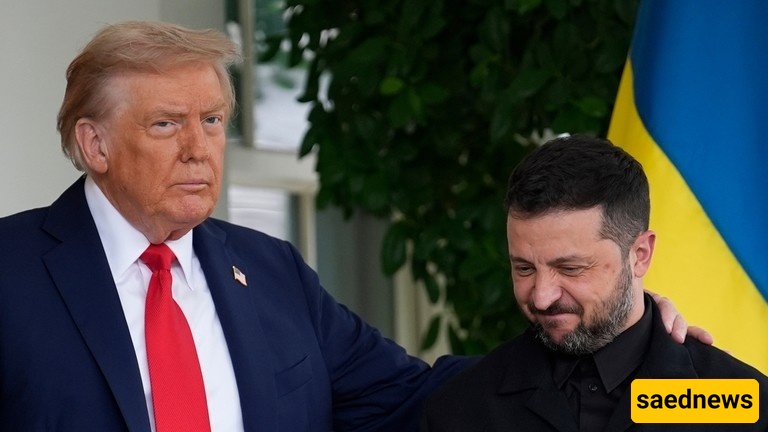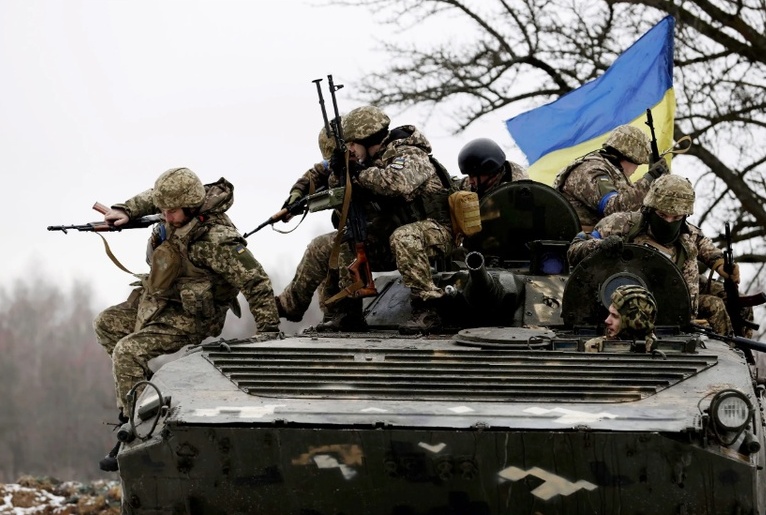SAEDNEWS: As the war in Ukraine enters its third year, Europe's solidarity with Kyiv is being tested more than ever. Economic erosion, public fatigue, and Donald Trump's return to the U.S. political stage have all combined to shape a new image of the balance of power in the Ukraine war and the future of the European Union.

According to SAEDNEWS, quoting Russia Today, in the midst of the third year of the Ukraine war, the outlook of this battle is shrouded in uncertainty more than ever. What, in the early days of the Russian invasion, seemed capable of turning into a victorious narrative through the courageous resistance of the Ukrainian people and swift Western solidarity has now given way to a narrative of fatigue, erosion, and even a kind of gradual retreat. The European Union, which initially presented itself as a unified and resilient front at the onset of the crisis, is now facing internal disputes, economic pressures, and a heavy shadow of social dissatisfaction. Meanwhile, Kyiv, which once relied on grand promises of unlimited Western aid, is now struggling with arms limitations, declining domestic morale, and increasing human and economic costs. In this context, Donald Trump's reemergence as a serious contender in the U.S. political arena has complicated the equation; a figure who from the start bluntly spoke of the war’s futility for the United States and, through his positions, became a symbol of the West's fatigue from endless support for Ukraine.

These days in Brussels, the capital of the European Union, the political atmosphere has clearly changed. In the first year of the war, European leaders quickly lined up at the forefront of Ukraine’s defense, committing to financing and arming the country. Now, doubts in their behavior are evident. Some countries still insist on unconditional support with zeal, but a significant portion of European public opinion is no longer willing to bear the economic and inflationary costs of the war. Rising energy prices, supply chain disruptions, and pressure on national budgets have made the slogans of endless support for Ukraine lose their appeal for many citizens. This social fatigue has quickly transferred to the political arena, and anti-war parties, or at least those calling for negotiation and compromise, have gained strength in polls.
On the other hand, the field situation in Ukraine is not particularly promising. The large-scale counterattacks that were supposed to change the equation have achieved nothing but heavy casualties and Russian defensive lines that are stronger than before. Although Kyiv continues to emphasize resistance and steadfastness, it is clear to many analysts that the war has reached a costly deadlock. Mandatory conscription, economic pressure on citizens, and a slowdown in Western aid are all signs that the domestic conditions in Ukraine are becoming more difficult. Volodymyr Zelensky, the President of Ukraine, who once became a symbol of global heroism, is now facing challenges to legitimacy and unmet expectations more than ever.
At this sensitive point, Trump’s name has once again returned to the center of the game. He, who during his presidency repeatedly accused the European Union of “taking advantage of America,” today explicitly states in his election campaign that continuing endless aid to Ukraine is not only unnecessary but also detrimental to the United States. For many European leaders, this stance is like a serious alarm. Because if Trump returns to power, there is no doubt that Washington will change the current path of unlimited support. This prospect, in itself, fuels divisions among Europeans: some countries fear that with a potential U.S. withdrawal, the entire burden of the war will fall on them—a burden their economic and political capacity cannot bear.
Even at this stage, we are witnessing that the U.S. Congress is facing serious challenges in approving new aid packages for Ukraine. Republican members of Congress, especially those close to Trump, have repeatedly emphasized that America’s priority should be domestic issues and controlling border crises, not spending billions of dollars on a war whose prospects of victory are unclear. These doubts have slowed down the flow of aid, leaving Kyiv with serious shortages of equipment and ammunition. In his recent speeches, Zelensky has adopted a more pleading tone than ever, asking the West not to abandon Ukraine; but the audiences of these messages in Brussels and Washington are no longer as united as before.
Europe occupies a fragile position in this equation. On one hand, this war directly affects the continent’s security, and in the eyes of many European leaders, withdrawing support for Ukraine would mean accepting Russian expansionism. On the other hand, the economic and political capacities of European countries to continue broad support are waning. The energy crisis, economic recession, and the rise of populist and right-wing forces have added extra pressure on governments. European citizens, who once appeared in the streets with Ukraine’s blue and yellow flags, are now more concerned about energy bills and daily livelihoods. This shift in priorities has shaped the root of many new political gaps in Europe.
Meanwhile, Russia, despite the pressure of sanctions and relative isolation, has managed to find new paths for survival. Trade with China, India, and other non-Western powers has saved the Russian economy from collapse. Moscow, relying on its vast energy resources and military power, continues to maintain initiative on many fronts. The fact that sanctions have failed to bring the Kremlin to its knees has increasingly damaged the West’s credibility and reinforced the perception that Europe and America’s strategy toward Russia has failed.
All these factors together have made the claim that “Europe and Kyiv are losing” no longer just a provocative slogan but also reflected in more serious analyses. Of course, losing does not mean a complete and immediate defeat; rather, it mostly refers to a protracted war and the loss of political and social capacity to continue it. If in 2022 this war was pictured as an opportunity to display Western power and unity, today the same war has become a symbol of fatigue, doubt, and division.
Trump’s return completes this equation. He is not only a potential threat for Europeans but, for many critics of the war, a kind of “witness” showing that opposing the continuation of this path is a legitimate and even defensible option. In his election speeches, Trump explicitly says he can stop this war within 24 hours; a claim that, although it does not seem realistic, holds appeal for a war-weary public. In a way, he has become the unconscious spokesperson for a large segment of Western society that is no longer willing to pay the costs of this conflict.
It is still too early to definitively say who will be the main loser of this war. But what is clear is that the image of a quick and decisive victory for Ukraine and Europe has completely faded. The path ahead will be shaped more in political rooms and among Western public opinion than on the battlefield. Europe must decide whether it can afford to continue support or will be forced to accept some form of compromise. Ukraine must choose between the ideal of absolute resistance and the harsh realities of the battlefield and domestic economy. And the United States, with or without Trump, will no longer be the unconditional ally it was pictured to be in the first year of the war.
Ultimately, it can perhaps be said that the Ukraine war has shown more than anything else that Western unity, although it may appear powerful and cohesive in the short term, is fragile in the long term under the pressure of costs and internal divisions. Today, when we look at the field, we cannot deny that Russia remains steadfast, Ukraine is tired and exhausted, Europe is hesitant, and the United States is on the verge of changing course. In such conditions, a phrase that once seemed merely a political slogan—“Europe and Kyiv are losing”—now more than ever takes on the color and smell of reality, and Trump’s presence in this scene, as a living testimony to this transformation, adds to the complexity of the story.

